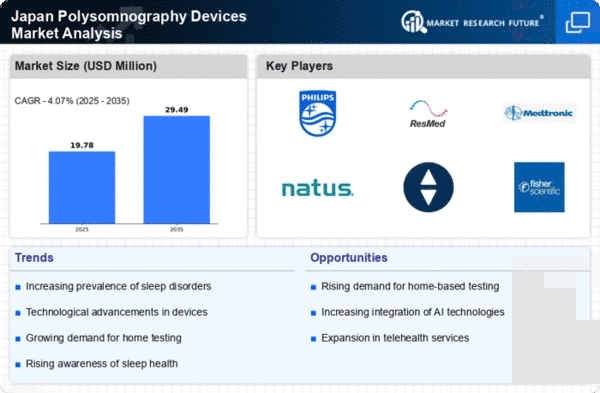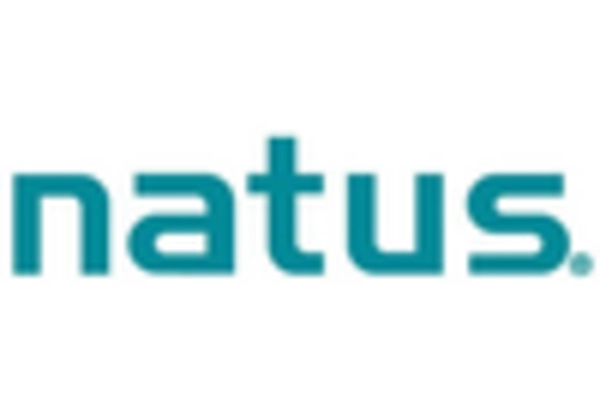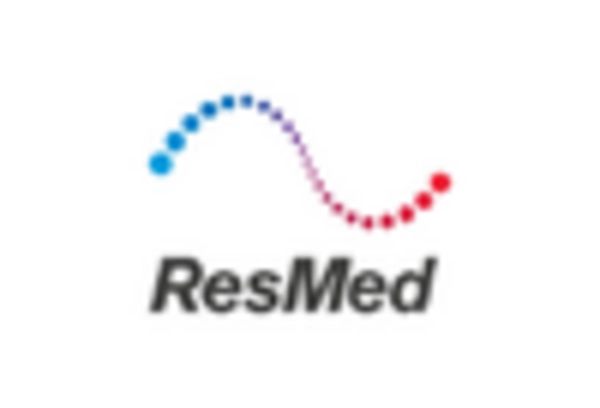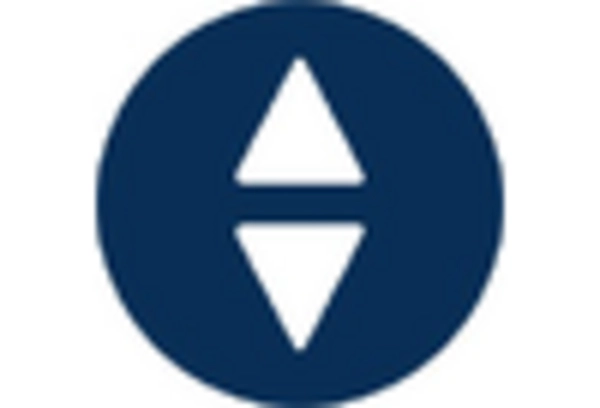Growing Public Health Campaigns
Public health campaigns in Japan aimed at raising awareness about sleep health are contributing to the expansion of the polysomnography devices market. These campaigns, often spearheaded by health organizations and government bodies, educate the population about the importance of sleep and the potential consequences of untreated sleep disorders. As awareness increases, more individuals are likely to seek diagnostic evaluations, leading to a higher demand for polysomnography devices. Recent surveys indicate that 65% of respondents are now more informed about sleep disorders than they were five years ago, highlighting the effectiveness of these initiatives. Consequently, the polysomnography devices market is expected to benefit from this heightened awareness, as more people pursue testing and treatment options.
Government Initiatives and Funding
Government initiatives aimed at improving healthcare infrastructure in Japan are significantly impacting the polysomnography devices market. The Japanese government has been actively investing in healthcare technology, with a focus on enhancing diagnostic capabilities for sleep disorders. Recent funding programs have allocated over ¥10 billion to support research and development in sleep medicine, which includes the advancement of polysomnography devices. This financial backing not only encourages innovation but also facilitates the adoption of these devices in clinical settings. As a result, healthcare facilities are more likely to integrate advanced polysomnography systems into their practices, thereby driving market growth. The ongoing support from the government is expected to bolster the polysomnography devices market in the coming years.
Rising Prevalence of Sleep Disorders
The increasing incidence of sleep disorders in Japan is a primary driver for the polysomnography devices market. Recent studies indicate that approximately 20% of the Japanese population experiences some form of sleep disorder, including sleep apnea and insomnia. This growing prevalence necessitates advanced diagnostic tools, such as polysomnography devices, to facilitate accurate assessments and treatment plans. As healthcare providers seek to address this rising concern, the demand for sophisticated polysomnography devices is expected to surge. Furthermore, the aging population in Japan, which is projected to reach 36% by 2040, exacerbates the situation, as older adults are more susceptible to sleep-related issues. Consequently, the polysomnography devices market is likely to expand significantly in response to these demographic trends.
Increased Investment in Sleep Research
The surge in investment in sleep research within Japan is a notable driver for the polysomnography devices market. Academic institutions and private organizations are increasingly funding studies focused on sleep disorders, which has led to a greater understanding of the complexities of sleep health. This research not only enhances the knowledge base but also drives the development of more sophisticated polysomnography devices tailored to specific sleep disorders. In recent years, funding for sleep research has increased by approximately 15%, reflecting a growing recognition of the importance of sleep health. As research continues to advance, the polysomnography devices market is likely to see an influx of innovative products designed to meet the evolving needs of healthcare providers and patients alike.
Technological Innovations in Sleep Monitoring
Technological advancements in sleep monitoring systems are propelling the polysomnography devices market forward. Innovations such as portable and wearable devices, which offer convenience and enhanced data collection capabilities, are gaining traction among both healthcare professionals and patients. The integration of artificial intelligence and machine learning algorithms into polysomnography devices allows for more accurate interpretations of sleep data, leading to improved patient outcomes. In Japan, the market for these advanced devices is projected to grow at a CAGR of 8% over the next five years, driven by the demand for more efficient and user-friendly solutions. As healthcare providers increasingly adopt these technologies, the polysomnography devices market is poised for substantial growth, reflecting the ongoing evolution of sleep medicine.
















